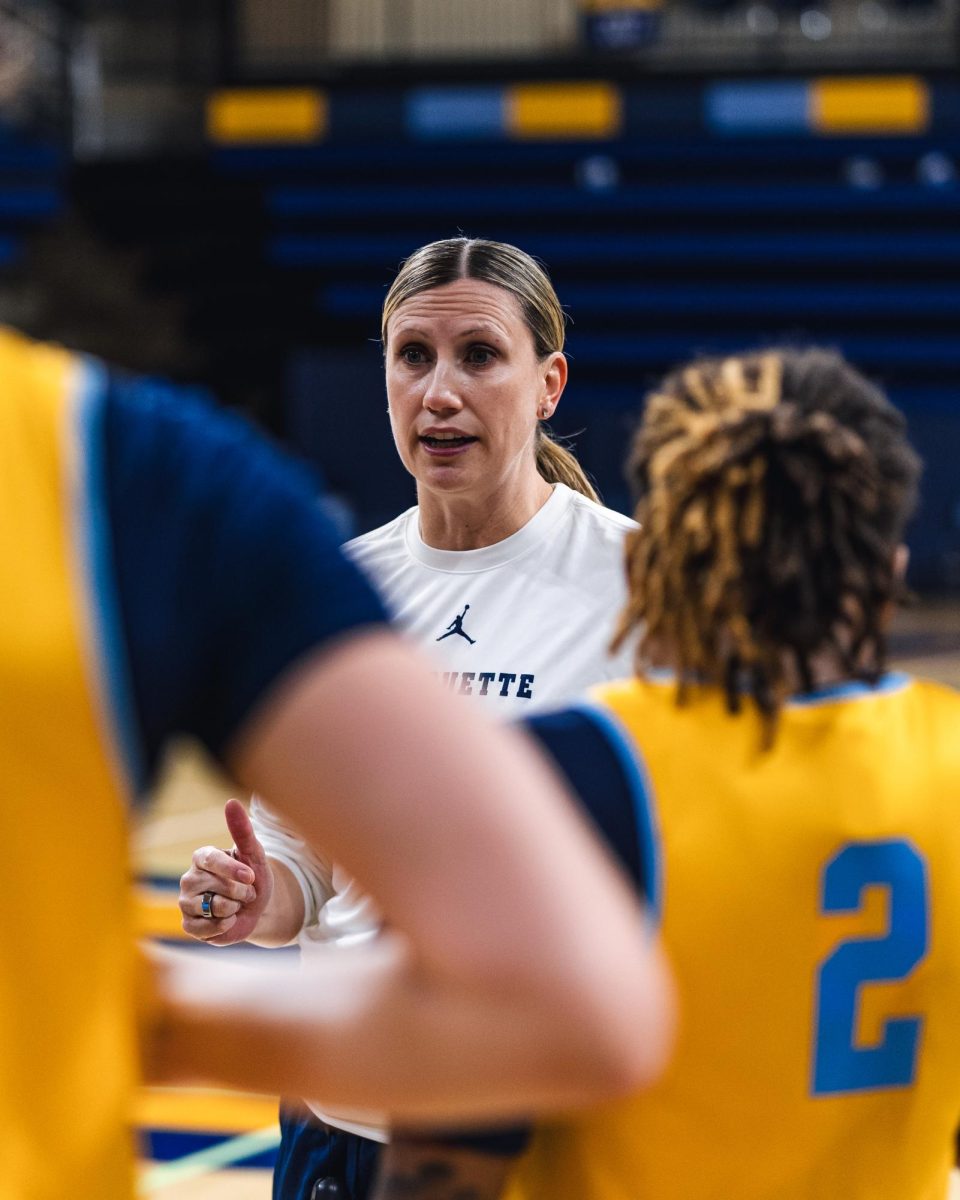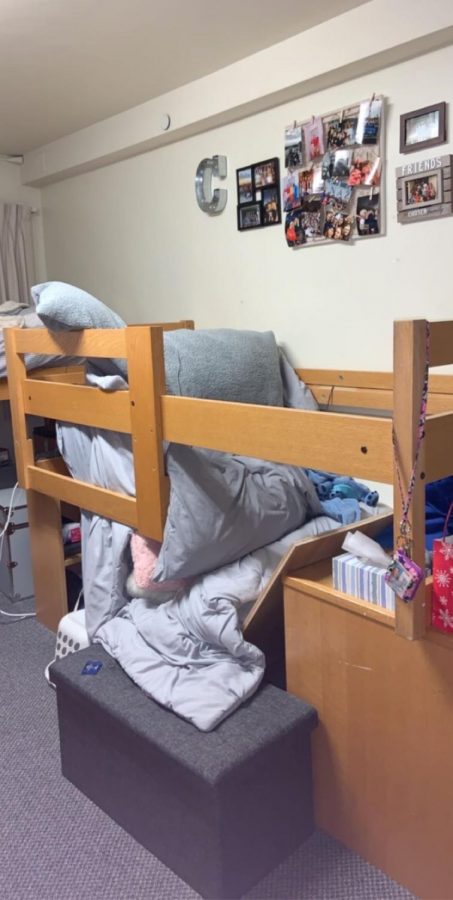“That’s probably just a rumor,” I said to myself when I first heard that the basketball players had received TempurPedic mattresses. All the clichés ran through my head: they may have more on their plate than other students, but student athletes are students first; they live in the dorms just like anyone else.
Not content to rest there, I did some research, and was surprised by the findings.
“We did purchase TempurPedic mattresses for both our men’s and women’s basketball student-athletes,” Danielle Josetti, the Golden Eagle’s Associate Athletic Director for Compliance, explained in an email. “We purchased the beds out of our operating budget.”
Being the humble voice of the people that I am in my position as a Tribune columnist, my sense of justice was offended. What does that say about what we value as a university? Our athletes sleep in luxury, while the future doctors and teachers are crammed into McCormick and Schroeder?
I can already hear some of you offering the same tired excuse for this sort of expense: the team brings in so much money for the university- why shouldn’t they be rewarded?
But that is only partly true. Yes, according to the data that Marquette submits to the Department of Education, athletic revenues exceed athletic expenses by $6.7 million, and yes, the men’s basketball team generates most of that revenue. But when I asked how the profit was being used, Vice President and Director of Athletics Bill Scholl offered this answer in an email: “The operating surplus that men’s basketball generates is utilized to assist in the funding of all of our other programs.” In other words, athletics largely reinvests in athletics, not academics.
Who really brings in money for the university? You’re more likely to find them on extra-long twin mattresses than TempurPedic ones. Tuition and Fees and Room and Board make up 72% of Marquette’s revenue, according to the operating budget for fiscal year 2015.
Of course, Scholl did not pretend that the basketball players were given the mattresses because of the revenue they help generate. He offered first a pragmatic justification: “many of these particular student-athletes are simply too large to fit in standard university-issued beds, and it is not unusual to purchase specialized mattresses.” (A good point; however, height, though an attribute of most basketball players, is not unique to them.)
Scholl also explained the larger, more humanistic reasoning behind the mattresses: “With the continued emphasis on overall wellness and performance for student athletes, universities with elite programs from across the country are focusing more on nutrition, strength, agility, and sleep to accommodate the unique needs of their student-athletes.” This is in keeping with our Jesuit values – cura personalis and all that jazz. But with research from the University of Alabama suggesting that 60% of college students suffer from sleep deprivation, it does seem unfortunate that only a small segment of the student body is having this problem addressed.
All this said, one could argue that the mattresses are justified because the athletes contribute in a way that isn’t quantifiable: that is, they excite us with their talent, and their endeavors give us something to rally around, something to ignite a unitive school spirit.
But here too, I find a bone to pick. My sister described to me a football game at UW-LaCrosse – she said she found herself bored with it, and the other students were equally disengaged or simply absent. Her description stood in stark contrast to my own memories of games at Marquette and the electrifying enthusiasm our students have for their teams, in winning or (as was so disappointingly the case last basketball season) in losing. I suggest it is less the teams than the unique sense of community at Marquette that lends our games their fervor.
In no way do I mean to diminish the accomplishments, both athletic and academic, of our school’s noble athletes, nor do I question the good intentions of the administrators who purchased the mattresses. What I do mean to point out is that buying TempurPedic mattresses for one group of students creates a false hierarchy which suggests that their contributions are more important than other students’.
In that case, I wouldn’t be surprised if many of you who contribute so generously to that sense of community begin to feel yourselves entitled to a finer mattress.









